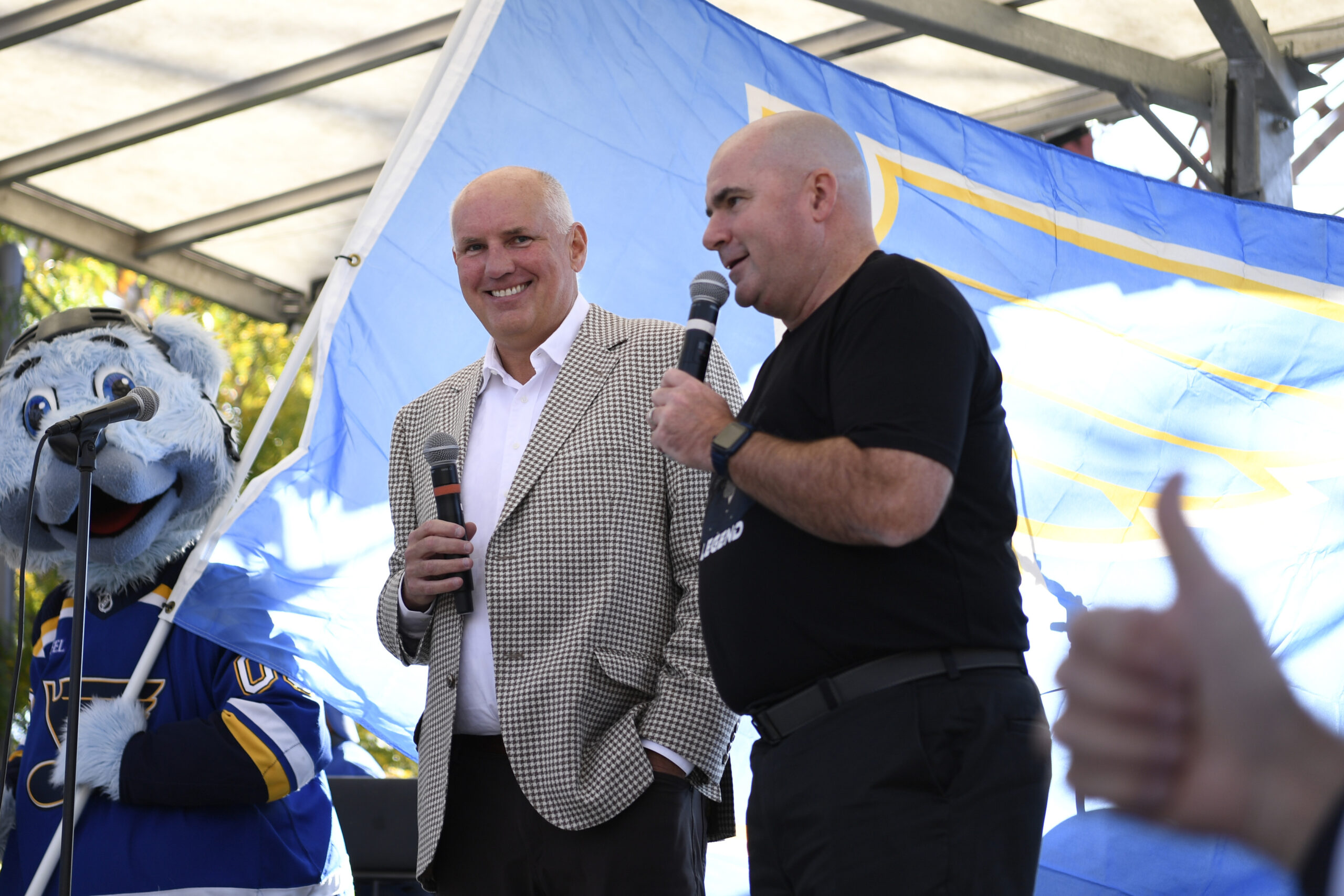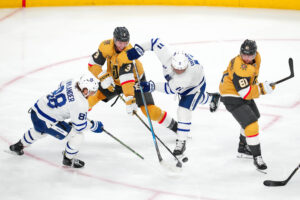Due to salary cap restraints, the St. Louis Blues should be looking to move on from veteran defenceman Torey Krug. For General Manager Doug Armstrong, this task can be done in multiple ways.
Torey Krug’s Impact on the St. Louis Blues Salary Cap
In October of 2020, the Blues signed Torey Krug to a seven-year contract worth $6.5 million a season. The deal also included a full no-trade clause until the final two seasons of the contract, in which Krug can submit a 15-team no-trade list. Krug’s $6.5 million cap hit each of his first three seasons with the Blues has taken up a sizable amount of the Blues available cap space. It is currently tied for the second-highest cap hit on the team. Currently, Krug’s salary is 7.4% of the Blues available salary cap.
Krug’s Play Has Not Been Worth the Money
Torey Krug’s time with the Blues started off well. In his first two seasons with the Blues, Krug played 51 games during the 2020-21 COVID-19 shortened schedule and 64 games the following year. In both those seasons, he registered over 30 assists and helped the Blues power play. Krug has a point share (PS) of 5.2 in his first season and 7.2 PS the next season. While Krug was not as sharp defensively, his offensive production could not be ignored.
As the Blues have negatively regressed each of the last two seasons, Krug’s play has as well. His struggles defensively have become more noticeable and he has struggled to help produce offensively. His point share has dipped to 2.5 and 3.7, respectively, over the past two NHL campaigns. Now Krug’s struggles have not caused the Blues recent decline as a whole. However, it is clear Krug is not the player the Blues need at this time. Quite frankly, the Blues are not the team Krug needs at this time either.
The Long-Term Effect of Keeping Krug
The Blues have players besides Torey Krug under long-term contracts taking up their salary cap. Robert Thomas, Jordan Kyrou, and Colton Parayko have contracts that take them into the 2029-30 season and beyond. Justin Faulk, Jordan Binnington, and Brandon Saad have shorter contracts, but still multiple years remaining. The cap hit for these deals ranges from $6 million (Binnington) to $8.125 million (Thomas and Kyrou).
Pavel Buchnevich is due for a contract extension after this coming season. Furthermore, Jake Neighbhours could be looking at a long-term extension following his breakout year last season that lived up to his draft report. A new contract for Buchnevich would likely need to be in the area of six to eight years with $7-$8 million a year. A possible Neighbhours contract is harder to guess, but it could be safe to assume that Neighbours will want to be in the ballpark of Thomas and Kyrou’s contract.
Investments in both players could cost the Blues around no less than $13.5 million and possibly as high as $16 million. If the Blues want to make this happen and still have money available to pursue other players, they should look for ways to shed cap space. Keeping Krug does not leave the Blues much room to operate. Moving on from Krug can be the first step for Doug Armstrong in getting the Blues back on the right track.
Trade Torey Krug to Save Salary
This would seem to be the easiest way for Armstrong to move Krug, but last offseason showed this is not always the case. Heading into the 2023 NHL Entry Draft last June, Armstrong agreed to a trade that would have sent Krug to the Philadelphia Flyers. Krug exercised his no-trade clause to veto the trade to Philadelphia. While the reason has not been fully explained, it is likely Krug did not want to go to a team that was (at the time) in a worse spot than the Blues were.
The no-trade clause is certainly a roadblock for Armstrong if he wants to try and trade Krug again. Armstrong’s best plan would be to call around to see if anyone was interested in Krug and then see if Krug would be willing to play for that team. It is possible that a team who lacked offence in the 2024 NHL Stanley Cup Playoffs this season, the Washington Capitals come to mind, may be interested in bringing in Krug. Teams who just missed the playoffs, such as the Detroit Red Wings, may also be interested in acquiring someone who can help move the needle forward. Krug may be more willing to go to a team with playoff aspirations.
It is also possible a trade would require Armstrong to agree to retain part of Krug’s salary. Anything saved in the cap can go a long way. Teams can only retain up to 50% of a player’s salary, so at the most, the Blues would only be paying Krug $3.25 million the next three seasons, which would still leave them savings.
Waive Torey Krug
If a trade does not work, Armstrong should look into placing Krug through waivers. Putting Krug through waivers would make him available to the other 31 NHL teams. Those teams would be able to claim Krug without having to give anything in return to the Blues. Claiming a player off of waivers also requires the claiming team to take on the entire contract. There is no retained money when it comes to waivers. If a team claimed Krug off of waivers, the Blues would have an additional $6.5 milliion to spend for the next three seasons.
If Krug were to pass through waivers with no team claiming him, that does not mean it was a failed venture by Armstrong. Krug, after passing through waivers, would be assigned to the Blues AHL affiliate, the Springfield Thunderbirds. Krug would most likely not want to play in the minor leagues. Placing Krug on waivers may encourage him to be more willing to accept a trade to another team.
Buyout Torey Krug
Doug Armstrong has never bought out a player in his tenure as general manager. He may need to break that streak and buyout Krug’s contract.
In the NHL, a player who is over 26 (Krug is in this case) and is bought out would receive 2/3 of their remaining contract for double the length of their remaining contract. If Krug would be bought out, the Blues would owe him $14 million over the next six seasons as opposed to $21 for the next three seasons. This saves the Blues over $4 million a year on their cap hit.
The Best Option
Armstrong’s best option is the one that gets Torey Krug out of St. Louis and free up cap space. Each option has a savings amount of some kind. It will not be an easy process, but due to cap restraints, it is one that Armstrong needs to undertake.
Main photo credit: Jeff Le-USA TODAY Sports






